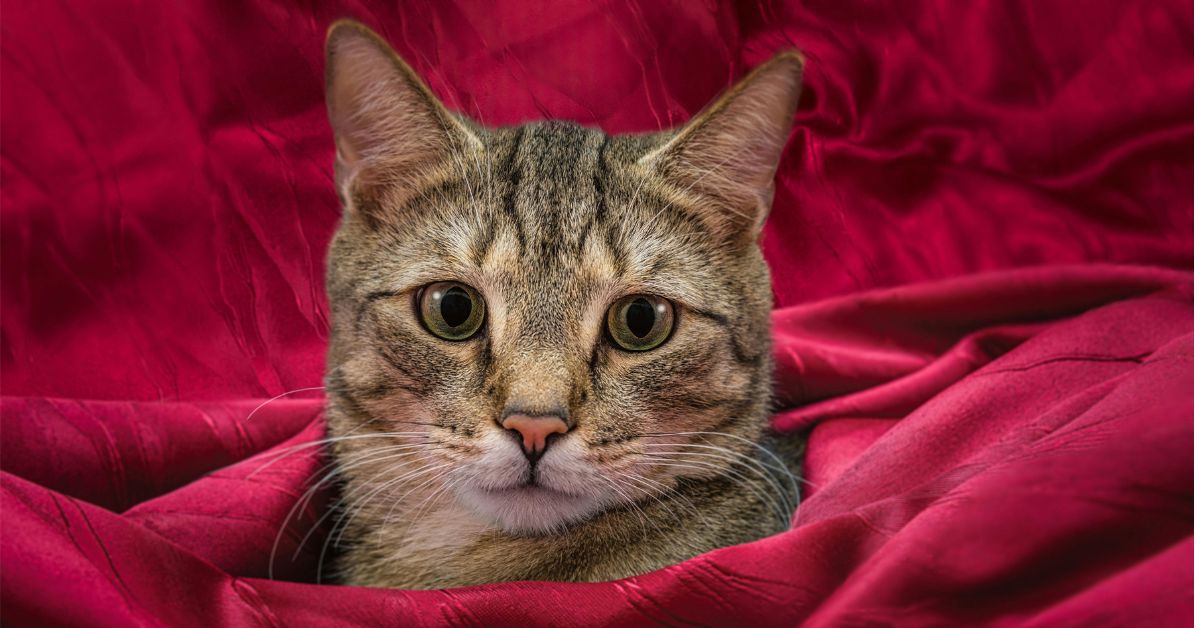Purring sounds are natural for cats, but some cat owners wonder why doesn’t my cat purr. In this article, you will learn about Cat purring meaning and Cat purring effect on humans.
Some owners are worried about why doesn’t my cat purr anymore. There can be many reasons for this, which we will discuss and you will get answers to all your questions.
How Do Cats Purr?
To understand this amazing sound, we need to understand the science behind it. The purring sound does not come from the vocal cords but from the quick closing and opening of the glottis, a primary valve located between the lungs and the mouth.
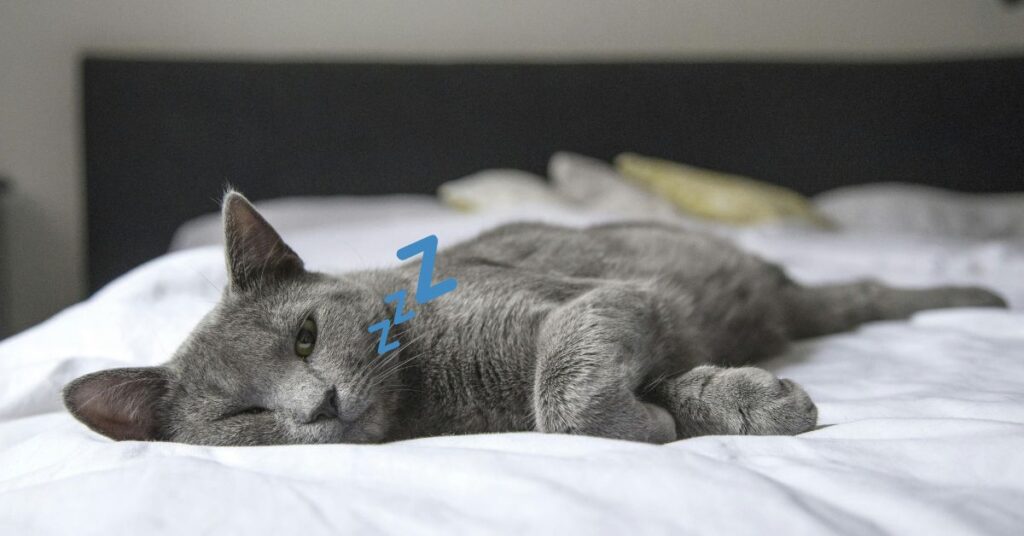
Scientific studies show that the brain areas of cats involved in purring are connected to the breathing muscles, which means that purring is related to their moods.
Reasons why doesn’t my cat purr
Cats do not purr all the time. But on some occasions, they purr, which can have multiple reasons. If your cat is very quiet and does not purr at all, then it indicates its health and feelings.
There can be many reasons but some of the main reasons can be:
| Reason for Lack of Purring |
|---|
| Emotional state |
| Health concerns |
| Personality differences |
Emotional state
Anxiety and stress can be a big factor in why a cat does not purr. Cats do not like loud noises. Often cats get stressed in such an environment. Cats also feel lonely due to lack of attention which gradually turns into anxiety.
If you are unable to give attention and time to your cat, then you can keep it with another cat or a friendly dog with whom it can interact.
- Do not take your cat to places with loud music or noisy places.
- Provide them with a cozy and comfortable place to sleep.
- I know they look very adorable while sleeping but do not disturb the cat while sleeping as this disturbs their sleep cycle and causes anxiety in them.
Health concerns
Purring is a vibrating sound that cats produce from their throat. Cats suffer from pain due to dental, throat, and respiratory problems. Due to this, they stop purring.
- Take them for regular vet checkups.
- Do not give them broken toys or sharp objects to play with.
Personality differences
Some cat breeds purr less. Chartreux is considered to be the quietest cat breed of old which also purrs very less. Therefore, it also depends on the breed and personality of the cat. Persian cats, Siamese, and Himalayan cats purr when petted because then they feel relaxed.
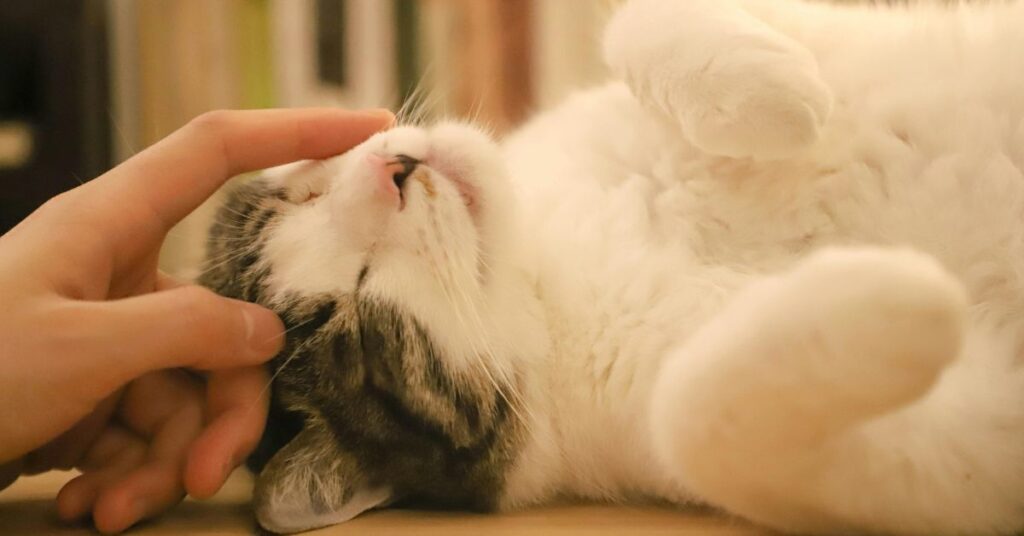
Cat purring meaning: Feline Communication
Cats use many ways to communicate with us such as meowing, smelling, or body language. Similarly, purring is a technique through which cats share their feelings with us, which can be affection or love. Cats mostly purr when they are relaxed. If you massage their neck and head, they purr which sounds like a vibrating sound.
If you are a new cat owner, then you may find this sound a little strange, but if your cat purrs while sleeping or while being petted, then it is very normal, it is their natural behavior.
What Different Types of Purrs Mean
Purring is not of one kind. Cats produce different types of purring sounds to indicate whether they are happy or upset. Because many times a cat purrs when it is in the pen. By observing these things, you will be able to understand the reason behind your cat’s purring.
The Greeting Purr: Cats make a soft purr when they recognize someone. This is a sign of friendliness. If a cat purrs while rubbing its body against your legs, it means it feels comfortable with you.
Growling to express demand: Cats express their needs by purring more insistently when they are hungry, often in the early morning. This type of purring sound is produced in search of food from the owner.
Contentment purring: When they are very relaxed and rested, they purr with slow blinks and calmness, which indicates that they are feeling calm and safe. Cats also purr like this while sleeping.
The Distress Purr: When they are anxious or in pain, they purr softly and for a long time. If your cat is suffering from a health problem, they purr softly and for a long time. You should take them to the veterinarian as soon as possible so that their problem can be diagnosed and treated.
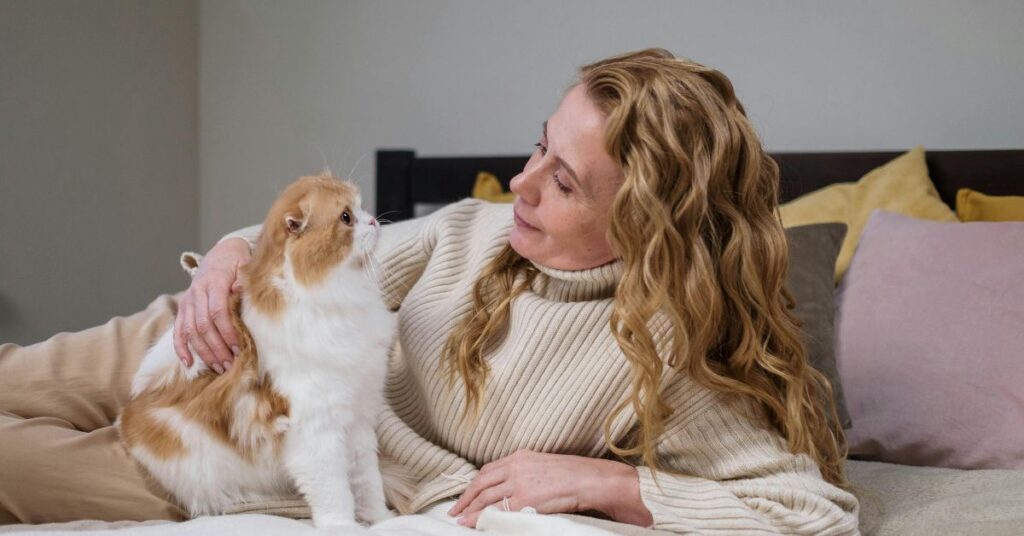
Encouraging Your Cat to Purr
If you are also concerned about why doesn’t my cat purr, then you should pet them lovingly give them treats and give them a quiet place.
Start with a gentle massage on their head, neck, and cheeks. These areas are sensitive and they get relief when petted. Do not massage vigorously as it may scare them.
Treats are a good way to strengthen your bond with them and encourage your cat to purr. They love tuna, cooked chicken and turkey-flavored treats.
- Avoid annoying moments.
- While petting, call their name in a calm voice.
- You should not get irritated, you have to be patient and build a bond with them. Therefore, purring is a way for cats to calm themselves and communicate.
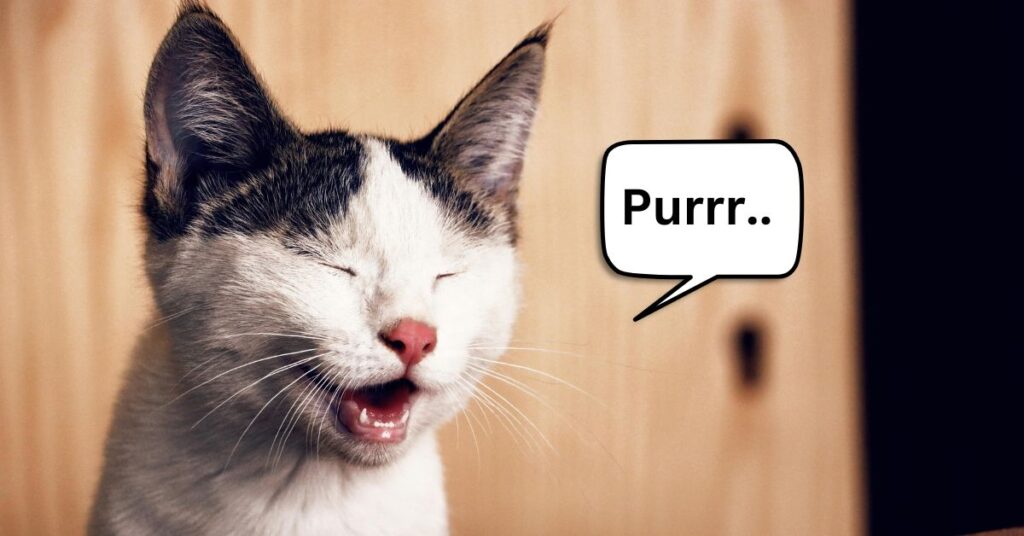
Cat purring effect on humans
It is not just a sound but it also has a positive effect on humans. Many studies show that the vibrations emanating from their purring soothe humans.
When we hear a cat purr, its sound frequency is 25 to 150 Hz which reduces our stress level. Our happy hormones like oxytocin and endorphins are released which reduce anxiety and stress and make us feel relaxed.
Purring strengthens our emotions and along with that it also improves our heart health and reduces blood pressure. The frequency of this sound is parallel to the healing frequency which helps in healing.
why does my cat purr so much
Some cat purrs all the time which is a very normal thing, it shows that your cat is happy and calm. More purrs also indicate that they are healthy. Cats also purr to get your attention; this is their way of saying “hello or asking for a treat”.
If their purring is too intense and too much, it could also be a sign of a health problem. You need to find out what is causing your cat to purr constantly.
These are some signs of a health problem:
- Stops eating
- Loss of appetite
- Fever
- Vomiting and diarrhea
- Noisy breathing
Also read: Persian Cat Care Guide: How Long Can I Leave My Persian Cat Alone? & Do They Need AC In India?

I am Saral Kumar, a passionate blogger who dedicates my time to providing valuable information on pet care, especially cats. I create content that helps cat owners to understand their furry friends better and take care of them. I have spent the last decade trying to understand cats better. So I am sharing my valuable insights and tips with my fellow cat enthusiasts through writing.
